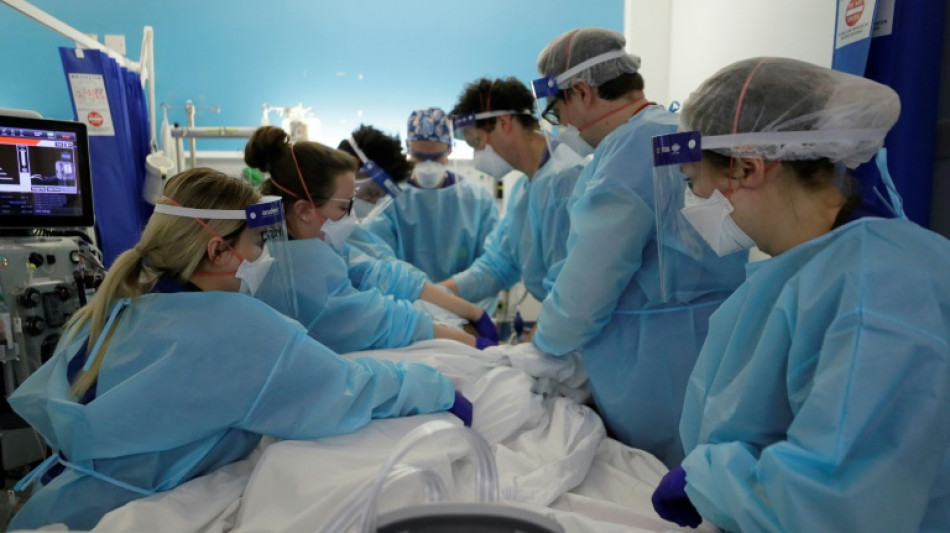
-
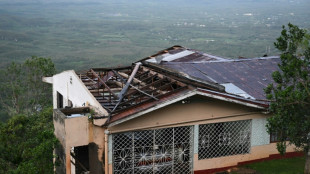 'Nowhere to sleep': Melissa upends life for Jamaicans
'Nowhere to sleep': Melissa upends life for Jamaicans
-
Irish octogenarian enjoys new lease on life making harps
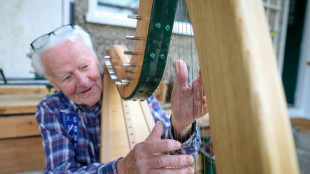
-
 Tanzania blackout after election chaos, deaths feared
Tanzania blackout after election chaos, deaths feared
-
G7 meets on countering China's critical mineral dominance

-
 Trump hails tariff, rare earth deal with Xi
Trump hails tariff, rare earth deal with Xi
-
Court rules against K-pop group NewJeans in label dispute

-
 India's Iyer says 'getting better by the day' after lacerated spleen
India's Iyer says 'getting better by the day' after lacerated spleen
-
Yesavage fairytale carries Blue Jays to World Series brink

-
 Bank of Japan keeps interest rates unchanged
Bank of Japan keeps interest rates unchanged
-
Impoverished Filipinos forge a life among the tombstones

-
 Jokic posts fourth straight triple-double as Nuggets rout Pelicans
Jokic posts fourth straight triple-double as Nuggets rout Pelicans
-
UN calls for end to Sudan siege after mass hospital killings

-
 Teenage Australian cricketer dies after being hit by ball
Teenage Australian cricketer dies after being hit by ball
-
As Russia advances on Kupiansk, Ukrainians fear second occupation

-
 Trade truce in balance as Trump meets 'tough negotiator' Xi
Trade truce in balance as Trump meets 'tough negotiator' Xi
-
China to send youngest astronaut, mice on space mission this week

-
 Yesavage gem carries Blue Jays to brink of World Series as Dodgers downed
Yesavage gem carries Blue Jays to brink of World Series as Dodgers downed
-
With inflation under control, ECB to hold rates steady again

-
 Asia stocks muted with all eyes on Trump-Xi meeting
Asia stocks muted with all eyes on Trump-Xi meeting
-
Personal tipping points: Four people share their climate journeys

-
 Moto3 rider Dettwiler 'no longer critical' after crash: family
Moto3 rider Dettwiler 'no longer critical' after crash: family
-
US economy in the dark as government shutdown cuts off crucial data

-
 Trump orders nuclear testing resumption ahead of Xi talks
Trump orders nuclear testing resumption ahead of Xi talks
-
'Utter madness': NZ farmers agree dairy sale to French group

-
 Samsung posts 32% profit rise on-year in third quarter
Samsung posts 32% profit rise on-year in third quarter
-
30 years after cliffhanger vote, Quebec separatists voice hope for independence

-
 Taxes, labor laws, pensions: what Milei wants to do next
Taxes, labor laws, pensions: what Milei wants to do next
-
South Sudan's blind football team dreams of Paralympic glory
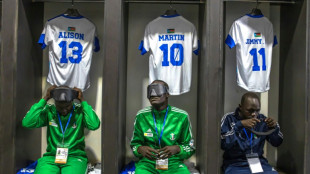
-
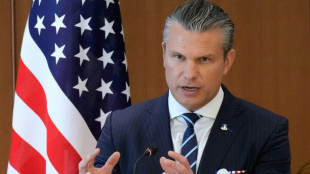 US says 4 killed in new strike on alleged Pacific drug boat
US says 4 killed in new strike on alleged Pacific drug boat
-
What we do and don't know about Rio's deadly police raid

-
 'They slit my son's throat' says mother of teen killed in Rio police raid
'They slit my son's throat' says mother of teen killed in Rio police raid
-
Arteta hails 'special' Dowman after 15-year-old makes historic Arsenal start

-
 Google parent Alphabet posts first $100 bn quarter as AI fuels growth
Google parent Alphabet posts first $100 bn quarter as AI fuels growth
-
Underwater 'human habitat' aims to allow researchers to make weeklong dives
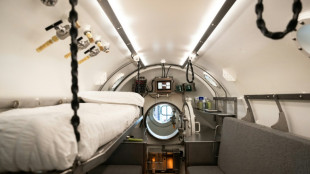
-
 Maresca slams Delap for 'stupid' red card in Chelsea win at Wolves
Maresca slams Delap for 'stupid' red card in Chelsea win at Wolves
-
'Non-interventionist' Trump flexes muscles in Latin America

-
 Slot defends League Cup selection despite not meeting 'Liverpool standards'
Slot defends League Cup selection despite not meeting 'Liverpool standards'
-
'Poor' PSG retain Ligue 1 lead despite stalemate and Doue injury

-
 Kane nets twice in German Cup as Bayern set European wins record
Kane nets twice in German Cup as Bayern set European wins record
-
Liverpool crisis mounts after League Cup exit against Palace

-
 Juve bounce back after Tudor sacking as Roma, Inter keep pace with leaders Napoli
Juve bounce back after Tudor sacking as Roma, Inter keep pace with leaders Napoli
-
Kane scores twice as Bayern set European wins record

-
 Radio Free Asia suspends operations after Trump cuts and shutdown
Radio Free Asia suspends operations after Trump cuts and shutdown
-
Meta shares sink as $16 bn US tax charge tanks profit
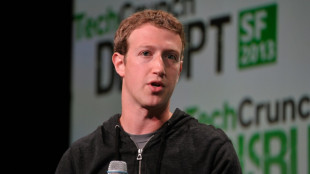
-
 Dollar rises after Fed chair says December rate cut not a given
Dollar rises after Fed chair says December rate cut not a given
-
Google parent Alphabet posts first $100 bn quarter as AI drives growth

-
 Rob Jetten: ex-athlete setting the pace in Dutch politics
Rob Jetten: ex-athlete setting the pace in Dutch politics
-
Juve bounce back after Tudor sacking as Roma keep pace with leaders Napoli

-
 Favorite Sovereignty scratched from Breeders' Cup Classic after fever
Favorite Sovereignty scratched from Breeders' Cup Classic after fever
-
Doue injured as PSG held at Lorient in Ligue 1


From nightmares to PTSD: Covid stokes UK health care staff crisis
Long shifts working in intensive care and the risk of catching Covid and passing it on to his wife and children left Joan Pons Laplana exhausted.
"By the end of the second wave I was all over the place. I had nightmares, panic attacks. I started having suicidal thoughts, mood swings," he told AFP.
"My personal life was falling apart."
Laplana, a 46-year-old Catalan who lives in Chesterfield, northern England, had suffered burnout even before the global health crisis hit.
But the intense work pressure saw him diagnosed with post-traumatic stress disorder, and forced him to quit as a nurse to protect his mental health -- joining tens of thousands of health workers who have resigned during the pandemic.
"I saw a patient my age with a daughter my daughter's age," he said, recalling how the girl said goodbye over an electronic tablet moments before her father passed away.
"I started having nightmare seeing the eyes of the dad."
Laplana is not alone.
In 2020, as Europe battled soaring cases of Covid, alarm bells were already being sounded about the emotional and psychological impact of the pandemic on frontline medics.
In Britain, the relentless pressure has led to an exodus of staff: some 33,000 workers quit the state-run National Health Service (NHS) in the third quarter last year.
That was almost double compared with the final quarter of 2019, just before coronavirus arrived in Britain.
According to official statistics, nearly 7,000 of those who resigned in the third quarter of 2021 said they wanted a better work-life balance.
- Long shifts -
Akshay Akulwar has not yet resigned but has thought about relocating abroad -- to New Zealand or Australia where salaries are higher -- or to his home country India.
The surgeon, who works in eastern England and is a spokesman at the Doctors' Association UK, said the long hours affect well-being, personal and family life.
The pandemic has seen him on call, work night shifts and do more hours than ever before, he said.
"Slowly and gradually you feel burnout, you start to work less effectively. You cannot go on at this elevated level of activity for so long, " he said.
Public sector union Unison said more than two-thirds of medical staff have suffered burnout during the pandemic, and more than half worked beyond their contractual hours.
As a result, more than half of the sector's employees are looking for a new job, deepening recruitment problems caused by retirement, Brexit and new immigration rules.
Unison's head of health, Sara Gorton, said staff had been "wrung dry by pandemic pressures" as they cover for sick colleagues and feel guilty about not providing quality care.
"The NHS was already more than 100,000 staff short before coronavirus. The pandemic has upped the strain on health employees, and many have had enough," she added.
Staff shortages caused by the rapid spread of the Omicron variant of coronavirus saw soldiers drafted in to help in British hospitals and ambulance services.
Bill Palmer, from the Nuffield Trust health sector think-tank, said NHS staff felt a "professional obligation" to stay on after the first year of the pandemic.
Between 2016 and the start of the outbreak, there had been a growing trend towards staff quitting their posts. Now after a pause, resignations are rising again, he added.
- 'Like a number' -
How to plug the gaps of staff departures in the NHS is a pressing problem for the government, with the pandemic having caused a huge backlog in treatment and surgeries.
The Nursing and Midwifery Council has said that last year there were some 8,000 fewer nurses from European Economic Area nations than in 2016.
More than half of EU nurses leaving Britain cited the country's departure from the bloc as a reason for their decision.
Getting medical and social care staff from further afield is also problematic, with tighter post-Brexit immigration rules also proving a block on recruitment.
Higher salaries in other sectors are proving a draw for lower-paid, non-medical NHS staff.
Alex, who declined to give his full name, said he quit his job as a community mental health nurse in northwest England because he felt "treated like a number and not like an individual".
His workload increased by 25 percent but the additional responsibilities did not see his pay increase, affecting his own mental health.
He now works for with victims of modern slavery and domestic violence.
"I have similar pay but less stress, less workload," he said. "I feel supported."
Q.Najjar--SF-PST
